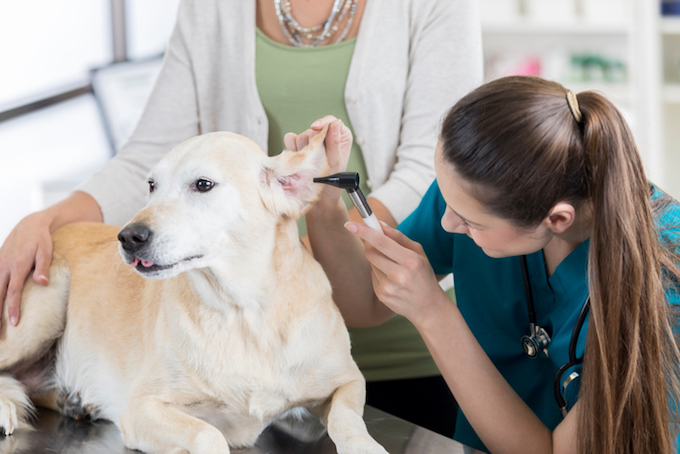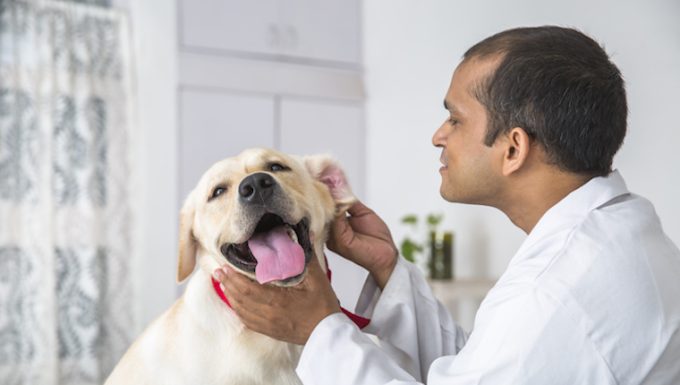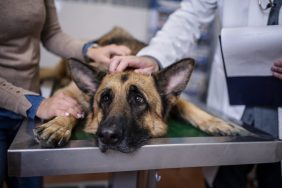Ceruminous gland adenocarcinoma in dogs happens when malignant tumors form in the ear canal. Thankfully, the condition is quite rare.
The condition produces tumors that are an irregular shape and are prone to bleeding.
If you see the signs of ceruminous gland adenocarcinoma in your dog, then get to a veterinarian for a proper diagnosis and treatment.
Here’s what you should know about the symptoms, causes, and treatments for the condition.
Symptoms of Ceruminous Gland Adenocarcinoma in Dogs
The condition produces a number of symptoms. For example, some of the most common symptoms include:
- Scratching the ear a lot
- Head tilt
- Pain in the ear
- Discharge from the ear (often bloody)
- Shaking the head
Causes of Ceruminous Gland Adenocarcinoma in Dogs

The cause of the condition is actually unknown. Although the condition is thought to involve the swelling of the glands that produce ear wax in the ear.
Additionally, Cocker Spaniels and German Shepherds are more likely to develop the condition than other breeds of dog.
Treatments for Ceruminous Gland Adenocarcinoma in Dogs
Firstly, your vet will ask about your dog’s symptoms. Secondly, your vet will ask about your dog’s full medical history.
Thirdly, a full physical examination will be carried out. Special attention will be paid to your dog’s ear. A device called an otoscope is used to closely examine the ear.
Ultimately, a biopsy of any tumors can confirm the condition.
Treatment for the condition involves a surgery. This is to remove any tumors. In some cases, the entire ear canal will need to be removed.
In cases where the condition has spread, chemotherapy might also be needed.
While recovering at home it is important to provide your dog with a quiet and calm environment. Additionally, you’ll need to keep up regular visits with your vet to check on your dog’s hearing.
Have you ever cared for a dog who suffered from this condition? How did your vet help your dog recover? Let us know in the comments section below.









